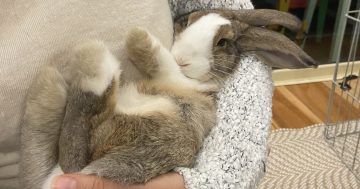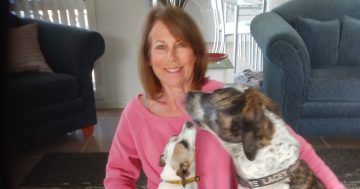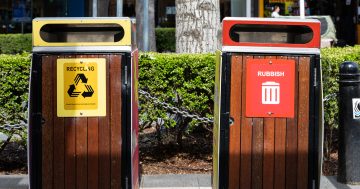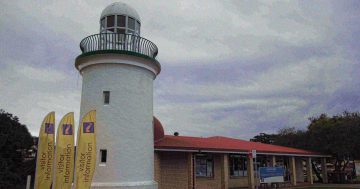
Hilltops Council got a little more than it bargained for when it recently released its draft Keeping of Domestic Animals Policy for comment. Photo: Edwina Mason.
If there’s one thing Hilltops Council has discovered in recent weeks, it’s that thou shalt not dictate to the people the number of pets they can possess.
Mounting unease about unfettered ownership of domestic animals in the towns and villages of the local government area almost led to social media civil war after it appeared the council was cracking down on the numbers attached to each household.
One shot over the bow, an anonymous post, led to outrage populating feedback on Young NSW Community Group’s Facebook forum.
That’s what the council’s director of planning Jaime Dyhrberg wanted … in a fashion.
If that was what the council was proposing.
Instead, Mr Dyhrberg said, the rationale behind Hilltops’ draft Keeping of Domestic Animals Policy was to gauge community feeling on the matter of pet keeping in the shire’s towns and villages, including Young, Harden-Murrumburrah, Boorowa and Jugiong.
Under Section 124 of the Local Government Act 1993, the council had discretionary power to limit the type or number of animals on a property, he said.
The council can also place conditions on the keeping of animals, such as how close a dog kennel is from a property boundary or building.
“From time to time, we have exercised this power, most commonly in response to someone raising concerns about animal welfare or residential amenity such as noise or odour from too many animals being kept on a property,” Mr Dyhrberg told About Regional.
“And we have, from time to time, had situations where some animal owners have felt genuinely blindsided, they genuinely didn’t know their animals were being a nuisance and they didn’t know we had these powers.”
He said the council thought it may be helpful to have a policy on the keeping of domestic animals to promote a consistent approach when it deemed it appropriate to control the keeping of animals.
Mr Dyhrberg said the draft submission was not about seeking to extend or increase the use of the power, instead providing a reference point for residents wishing to raise concerns about the keeping of animals on a neighbouring property.
“We would continue to investigate matters, generally after a concern is raised with us,” he said, “and we won’t be going ‘door to door’ checking current pet ownership.
”We understand that it is not a ‘one-size-fits-all’ situation with the keeping of domestic animals.
“A key provision in the draft policy is the ability to apply for a variation which allows for a property owner to demonstrate they have the capability to keep more animals without compromising their wellbeing or disrupting the amenity of the neighbourhood.”
The establishment of a policy, he said, also shaped a consistent framework for the council, mitigating concerns around arbitrary limits currently assessed by compliance staff on a case-by-case basis.
“The proposed policy is limited to the keeping of domestic animals in residential settings,” he said. “It would not apply in rural areas or to the keeping of animals for commercial purposes.
“We’re definitely wanting to hear back from the community on this policy. That’s the idea of a draft policy, to put it out there and see what they have to say about it. But it’s also about communicating to animal owners what the policy is.”
Mr Dyhrberg said the questions were simple:
- Would it be helpful to have a policy to guide the investigation of concerns about animal welfare and residential amenity from the keeping of domestic animals, or should we leave it to be investigated on a case-by-case basis?
- And if you think a policy may be helpful, what do you think about the proposed limits on the number of animals?
Last week the council hosted an online Q&A session that attracted about 50 people and Mr Dyhrberg said he was also encouraged by the 90 submissions the council had received so far.
With submissions closing this Friday (23 June), Hilltops Council’s vote on the policy will follow an assessment process.
To have your say on Hilltops’ draft Keeping of Domestic Animals Policy, click here.














